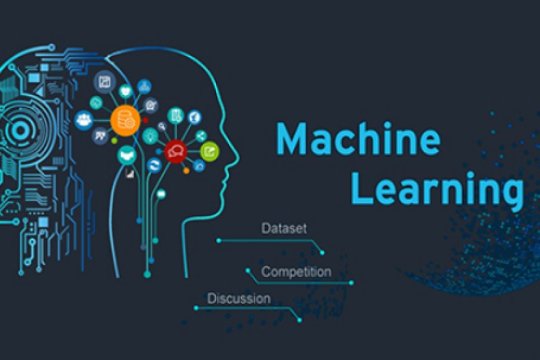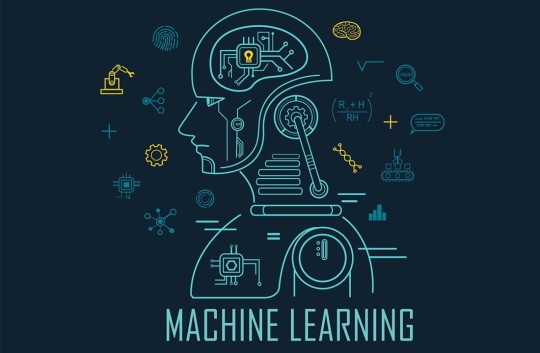Don't wanna be here? Send us removal request.
Text
https://www.analyticsinsight.net/dogecoins-rally-doge-climbs-8-in-a-day/
0 notes
Text
https://www.analyticsinsight.net/how-data-analysis-play-a-key-role-in-ipl/
0 notes
Text
The Impact and Applications of Machine Learning

Source By Iabac
Introduction
In the realm of finance, where data is abundant and decisions are critical, machine learning (ML) has emerged as a game-changer. This blog will delve deep into the various ways machine learning is transforming the finance industry, from algorithmic trading to risk management and beyond. Through an exploration of cutting-edge techniques, real-world examples, and future trends, we'll uncover how ML is reshaping the landscape of finance.
1. Understanding Machine Learning in Finance
Defining machine learning and Cryptocurrency Prices and News its significance in finance
Types of machine learning algorithms relevant to finance (supervised learning, unsupervised learning, reinforcement learning)
Challenges and opportunities in applying ML to financial data
2. Algorithmic Trading
Introduction to algorithmic trading and its evolution
How machine learning enhances algorithmic trading strategies
High-frequency Crypto News trading, predictive analytics, and sentiment analysis in trading algorithms
Case studies of successful algorithmic trading systems powered by ML
3. Fraud Detection and Anti-Money Laundering (AML)
The importance of fraud detection and AML in financial institutions
Machine learning techniques for detecting fraudulent activities and suspicious transactions
Unsupervised learning for anomaly detection and pattern recognition
Real-world examples of ML-driven fraud detection systems in action
4. Credit Scoring and Loan Approval
Traditional vs. machine learning-based credit scoring models
Predictive modeling for assessing creditworthiness and default risk
Use of alternative data sources and feature engineering in credit scoring
Improving fairness and transparency in ML-driven loan approval systems
5. Risk Management and Portfolio Optimization
ML applications in risk assessment, mitigation, and stress testing
Value-at-Risk (VaR) prediction using machine learning techniques
Portfolio optimization strategies leveraging ML algorithms
Addressing regulatory compliance and risk governance challenges with ML
6. Customer Relationship Management (CRM) and Personalization
Leveraging machine learning for customer segmentation and targeting
Recommendation systems for personalized financial products and services
Predictive analytics for customer churn prevention and retention strategies
Ethical considerations and data privacy in CRM powered by ML
7. Regulatory Compliance and Compliance Monitoring
How machine learning aids in regulatory compliance and monitoring
Automated compliance checks and fraud prevention using ML algorithms
Sentiment analysis for monitoring market manipulation and insider trading
Future trends in regulatory technology (RegTech) powered by ML
8. Robo-Advisors and Wealth Management
Rise of robo-advisors and their role in democratizing wealth management
Machine learning algorithms for asset allocation and investment recommendations
Tailoring investment strategies based on individual preferences and risk profiles
Challenges and opportunities in the adoption of robo-advisors by financial institutions
9. Natural Language Processing (NLP) in Financial Services
Applications of NLP in financial news analysis, sentiment analysis, and text summarization
Automated document processing for regulatory filings and compliance reports
NLP-powered virtual assistants for customer support and financial advisory services
Case studies of NLP implementations in financial institutions
10. Future Trends and Challenges
Emerging trends in machine learning and artificial intelligence in finance
Advancements in explainable AI (XAI) for transparency and accountability
Overcoming challenges such as data privacy, model interpretability, and regulatory hurdles
The potential impact of quantum computing and blockchain technology on ML in finance
Conclusion
As we've explored in this comprehensive guide, machine learning is revolutionizing every facet of the finance industry, from trading to risk management, fraud detection, and customer service. With its ability to analyze vast amounts of data, uncover hidden patterns, and make informed decisions, ML is poised to reshape the future of finance, driving efficiency, innovation, and customer-centricity. As financial institutions continue to embrace AI-driven solutions, the possibilities for enhancing profitability, mitigating risks, and delivering personalized experiences are endless.
Read More Blog :
Evolution of Programming Languages: From Fortran to Rust
Beginner's Guide to Programming Languages: Where to Start
How Artificial intelligence Improves Corporate Sustainability?
0 notes
Text
Machine Learning in Education System

Source By LinkedIn
Machine learning has the potential to significantly impact the education system by augmenting traditional teaching methods, personalizing learning experiences, and providing valuable insights to educators. Here are some ways machine learning is being used in education:
Personalized Learning: Machine learning algorithms can analyze vast amounts of student data, such as performance, learning style, and preferences, to create personalized Cryptocurrency Prices and News learning paths for individual students. This allows students to learn at their own pace and receive tailored content and feedback to maximize their learning outcomes.
Intelligent Tutoring Systems: Intelligent tutoring systems leverage machine learning techniques to provide adaptive and interactive learning experiences. These systems can assess a student's knowledge, identify areas of weakness, and provide targeted support and feedback. By Machine Learning adapting to each student's needs, intelligent tutoring systems can enhance the effectiveness of instruction.
Automated Grading and Feedback: Machine learning algorithms can automate the grading process for assignments, quizzes, and exams. This not only saves time for educators but also provides students with immediate feedback, enabling them to identify areas for improvement. Automated grading can handle objective assessments like multiple-choice questions and can even be extended to assess written responses using natural language processing techniques.
Predictive Analytics: Machine learning models can analyze historical data to predict student outcomes, such as academic performance, dropout rates, and behavior patterns. Educators can leverage these insights to identify at-risk students and provide timely interventions to improve their chances of success. Predictive analytics can also help with resource allocation and educational planning.
Recommender Systems: Machine learning-based recommender systems can suggest appropriate learning resources, such as books, articles, videos, or online courses, based on a student's interests, learning style, and past performance. These recommendations can help students discover new materials and enhance their learning experience.
Natural Language Processing: Natural Language Processing (NLP) techniques enable machines to understand and generate human language. NLP can be used to develop intelligent chatbots or virtual assistants that can answer students' questions, provide guidance, and offer support. These systems can be available 24/7, providing immediate assistance and reducing the burden on teachers.
Data-Driven Decision Making: Machine learning facilitates data analysis and can assist education policymakers and administrators in making informed decisions. By analyzing data on student performance, attendance, and engagement, machine learning algorithms can identify trends, patterns, and areas for improvement, helping institutions optimize their educational strategies and resource allocation.
Read More Blog:
South Korean Won Surpasses USD in Global Crypto Trading
Beginner Friendly Python Projects to add in your resume
Salaries of software engineers in Google, META and Microsoft in 2024
0 notes
Text
https://docs.google.com/document/d/1o1eWucBpsnYWwOW-KrWAy5Ki6P_cFUbLYrC9iqCQd6I/edit?usp=sharing
0 notes
Text
https://www.analyticsinsight.net/top-10-ai-courses-abroad-for-aspiring-tech-innovators/
1 note
·
View note